The following sessions have been organized by the ASME AMRGT Organizing Committee. These sessions are available to all AMRGT virtual symposium attendees. Register to attend these highly informative sessions and support your peers!
Tuesday, October 5, 2021 9:15 AM-9:45 AM EDT
Keynote
Neva Espinoza
Electric Power Research Institute
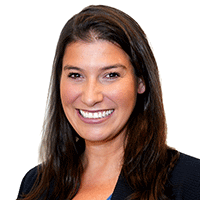
Keynote Title: Zero Emissions Approaches for the Electrical Generation Industry
Neva Espinoza is the Vice President, Energy Supply and Low-Carbon Resources at the Electric Power Research Institute (EPRI).
In this role she is leading a team focused on the research, development, and application of technologies for safe, reliable, and affordable power generation while supporting energy transformation in the power system. Research areas are focused on a range of energy supply technologies, including both existing and future generating assets and how they can be best leveraged in a deeply decarbonized power system. This includes the existing fossil fleet, largescale renewable generation assets, bulk energy storage, and the production and use of low-carbon energy carriers. In addition, Espinoza is leading the Low-Carbon Resources Initiative, in partnership with Gas Technology Institute, to accelerate development and deployment of low-carbon technologies.
Espinoza previously served as the Director of R&D for EPRI's Generation Sector. She joined EPRI in January 2012 with more than 10 years of operational and engineering experience in the power industry, across a diverse set of assets and technologies. Prior to EPRI, Espinoza served in technical and leadership positions at NRG’s Arthur Kill Power Station, Exelon’s Oyster Creek Power Station and Knolls Atomic Power Laboratory. Espinoza received a Bachelor of Science degree in mechanical engineering from Rutgers University and Master of Business Administration degree from Wake Forest University. She is a graduate of the U.S. Navy's Officer Nuclear Power Program and held a senior reactor operator license from the Nuclear Regulatory Commission.
Tuesday, October 5, 2021 9:50 AM-10:50 AM EDT
Tuesday, October 5, 2021 11:15 AM-12:15 AM EDT
Tutorial
Frauenhofer-Institute for Production Technology (IPT)
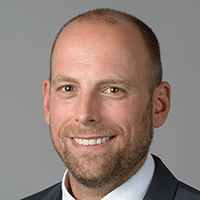
Tutorial Topic: Advanced Machining Processes for Manufacturing & Repair of Gas Turbine Components
Dr.-Ing. Sascha Gierlings, born in 1981, studied mechanical engineering with a focus in production technology at RWTH Aachen University. From 2008 to 2015 he was research associate at the Laboratory for Machine Tools and Production Engineering (WZL) in the department for process and product monitoring. His research focus was in the field of process monitoring for safety-critical aero engine components. Since 2015 he is working with the Fraunhofer-Institute for Production Technology (IPT) where he established the department for prototype manufacture and was responsible for the business development in turbomachinery. Since 2019, he is heading the department for technology-transfer in turbomachinery manufacturing and he is responsible for the entire business unit turbomachinery manufacturing at the WZL and Fraunhofer IPT.
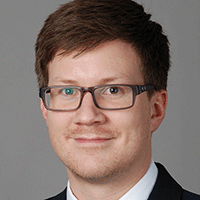
Dr.-Ing. Tim Herrig studied mechanical engineering at RWTH Aachen University with a focus in production technology. After graduation in 2014, he worked as a research associate with the Laboratory for Machine Tools and Production Engineering (WZL) in the department for non-conventional machining processes where he in many projects focused on the manufacturing of gas turbine components. In 2020 he published his dissertation on a novel manufacturing process “Wire Electro-Chemical Machining”. Since 2020 he is head of department for the non-conventional technologies at both, the WZL and Fraunhofer-Institute for Production Technology (IPT).
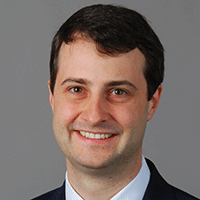
Robin Day, MSc. studied mechanical engineering with a focus in aeronautics. During his studies, he worked with several OEM’s and suppliers in the field of jet engine components. After his graduation he started working with the Fraunhofer-Institute for Laser Technologies (ILT) and its connected University Chair Digital Additive Production of RWTH Aachen University. During his PhD he focused on machine transferability in Laser Powder Bed Fusion to advance the maturity level of additive manufacturing to a serial production stage. Since 2020, he is working for the Fraunhofer-Institute with Production Technology (IPT) where he is heading the department for directed Energy Manufacturing.
Tuesday, October 5, 2021 12:00 PM-1:00 PM EDT
Panel
Oak Ridge National Laboratory
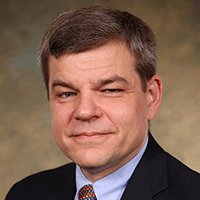
Panel Topic: Fabrication and Repair of Industrial Gas Turbine Engine Components using Advanced Manufacturing Processes
Thomas R. Kurfess (Moderator) currently serves as the Chief Manufacturing Officer, and the Interim Director for the Manufacturing Science Division at Oak Ridge National Laboratory. He received his S.B., S.M. and Ph.D. degrees in mechanical engineering from M.I.T. in 1986, 1987 and 1989, respectively. He also received an S.M. degree from M.I.T. in electrical engineering and computer science in 1988. During 2012-2013 he served as the Assistant Director for Advanced Manufacturing at the Office of Science and Technology Policy in the Executive Office of the President of the United States of America, where he was responsible for coordinating Federal advanced manufacturing R&D. He was President of SME in 2018, and currently serves on the Board of Governors of the ASME. His research focuses on the design and development of advanced manufacturing systems targeting secure digital manufacturing, additive and subtractive processes, and large-scale production enterprises. He is a member of the National Academy of Engineering and is a Fellow of ASME, AAAS, and SME.
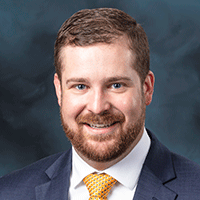
Dr. Thomas Feldhausen (Panelist) is a research staff member and technical lead for hybrid manufacturing with the Manufacturing Automation and Controls Group at Oak Ridge National Laboratory. His research at ORNL's Manufacturing Demonstration Facility utilizes hybrid manufacturing, a combination of additive and subtractive (machining) manufacturing, to provide industrial solutions for component repair, tooling and tooling repair, advanced energy systems, aerospace, and automotive applications. Before working at ORNL, Thomas worked at Honeywell Federal Manufacturing in Kansas City where he focused on multi-axis additive techniques for direct ink-write technologies. Thomas received his B.S. and M.S. degrees in Mechanical Engineering from Kansas State University, and his Ph.D. in Mechanical Engineering from the Georgia Institute of Technology.
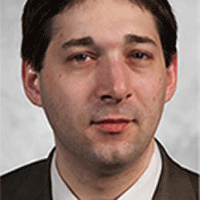
Dr. Michael Kirka (Panelist) is a Materials Scientist within the Deposition Science and Technology Group at Oak Ridge National Laboratory. Michael’s current research focuses on evaluating the suitability and limitations of high temperature Nickel-base (Ni-base) superalloys for additive manufacturing processes through understanding their microstructural evolution during processing in relation to their microstructure-property relationships. Additionally, Michael work on developing heat-treatments specific to Ni-base superalloy processed via additive manufacturing. Previously, Michael’s research has focused on laser based repair techniques for Ni-base superalloy gas turbine airfoils and understanding the thermomechanical material degradation mechanisms in nickel-base superalloys exposed to service like conditions. Michael received his B.S. in materials science 2007 from The University of Michigan and M.S. and Ph.D. degrees from The Georgia Institute of Technology in mechanical engineering in 2010 and 2014 respectively.
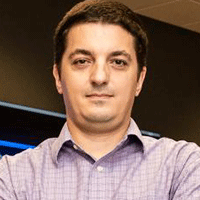
Dr. Vincent C. Paquit (Panelist) is a senior research scientist in the Electrical and Electronics Systems Research (EESR) Division at the Oak Ridge National Laboratory (ORNL) pursuing research and development efforts in the Computer Vision and Image Processing area, with a predilection for high performance image processing algorithm development. Before joining ORNL, he worked at the University of Burgundy (France) as an engineer in technology transfer for the Laboratoire Electronique Informatique Image (Le2i) for all commercial and technical applications in the fields of Electronic, Computer Science and Signal Processing. Since then, Dr. Paquit has been an active member of the Imaging, Signals, and Machine Learning (ISML) group, working on multiple projects and programs supporting two core missions of the Department of Energy: Energy sustainability and National Security. He is contributing to ORNL’s scientific endeavor by conceiving, designing and implementing complex computer vision and multidimensional imaging systems - combining both hardware and software development - to perform quantitative analysis of complex datasets and/or to make quantitative measurement of various objects. Currently, Dr. Paquit is the Data Analytics lead for the Manufacturing Demonstration Facility (MDF). His team is developing a Data Analytics Framework for Manufacturing aiming at better understanding additive manufacturing processes for the purpose of process certification and control. His research interests include applied signal and image processing, algorithm development on GPU platform, 2D and 3D image segmentation, multispectral and hyperspectral imaging, biomedical imaging, pattern recognition, remote sensing data understanding, and machine learning. He has published numerous peer-reviewed articles, one book chapter, submitted multiple invention disclosures, and served on program committees of several international conferences.
Wednesday, October 6, 2021 2:20 PM-3:20 PM EDT
Lecture
Nick Smith
Electric Power Research Institute
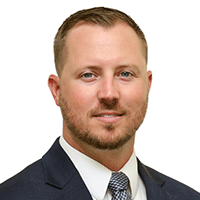
Lecture Topic: Process Compensated Resonance Testing (PCRT) with Case Studies
Nicholas Smith is a Senior Technical Leader in the Electric Power Research Institute’s (EPRI) Combined Cycle Turbomachinery Design and Maintenance R&D Program. Smith began his career at Siemens Energy as a field service engineer and project manager in the Richmond, Va., district. He performed maintenance and upgrade outages on turbine-generators across the country, including modern and vintage design, large-frame combustion turbines. Following his tenure with Siemens, Smith worked for Viking Turbine Services as a field engineer and technical advisor. He provided technical oversight of outage activities during maintenance and upgrade outages. Additionally, Smith provided hardware and component assessments as well as innovative operation and maintenance assistance. Smith continued his field consulting work by forming Centerline Technical Consulting. He served as president and lead engineer prior to joining EPRI. Smith graduated from University of North Carolina at Charlotte in 2011 with two Bachelor of Science degrees in Mechanical Engineering as well as Physics and Optical Science.
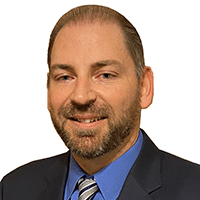
Garrett Gatewood is an Application Engineer and a Process Compensated Resonance Testing (PCRT) level III for Vibrant Corporation. Gatewood began his career at Ethicon Endo Surgery, a Johnson & Johnson company, as a production engineer and project manager in Albuquerque, NM. He performed maintenance and upgrades on packaging machines and was involved in LEAN and 6sigma process implementation. Following his tenure with Ethicon, Gatewood began working for Vibrant as an application engineer. He has provided resonance solutions for over 10 years to the aerospace, automotive, and power generation industries. Additionally, Gatewood acquired his level III certification allowing him to approve PCRT procedures and personnel certifications. Gatewood graduated from the University of New Mexico for both a Bachelor of Science degree in Mechanical Engineering in 2008, and a Master of Science degree in Mechanical Engineering in 2011.
Friday, October 8, 2021 9:10 AM -10:10 AM EDT
Tutorial
Rogerio Lima
National Research Council of Canada
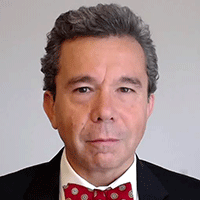
Tutorial Topic: Environmental Barrier Coatings (EBCs) and Ceramic Matrix Composites (CMCs) for the Next Generation of Gas Turbines
Dr. Rogerio S. Lima obtained a Bachelor’s Degree in Physics and a Master’s Degree in Materials Science from the Federal University of Rio Grande do Sul (UFRGS); in Brazil. From 1998 to 2001 he pursued his PhD in Materials Science and Engineering at the Center for Thermal Spray Research of Stony Brook University (USA); studying under the mentorship of Prof. Chris Berndt (now Distinguished Professor at Swinburne University of Technology – Australia). Dr. Lima received the Distinguished Doctoral Student Award from Stony Brook University (USA). After his PhD graduation, Dr. Lima joined the Thermal Spray Team of the National Research Council of Canada (NRC) in 2001 as a Research Associate and was awarded permanent position in 2006. He currently holds the position of Senior Research Officer at the NRC. He has published 69 refereed journal papers and 63 conference papers. His scientific papers have been cited more than 3400 times and his h-index is 32 (Scopus: August 24, 2021). He has worked two times as Lead-editor and three times as Co-editor for the Proceedings of the International Thermal Spray Conference (ITSC) and has been Co-editor of eight special editions of the Journal of Thermal Spray Technology. He is also Affiliate Professor at Concordia University (Canada) and Senior Associate Investigator at the Surface Engineering for Advanced Materials Centre (Australia). Dr. Lima is currently the ASM International TSS Vice-President. Dr Lima’s main scientific interest is R&D of thermally sprayed thermal barrier coatings (TBCs) and environmental barrier coatings (EBCs) for aerospace applications.
Friday, October 8, 2021 10:35 AM-11:35 AM EDT
Lecture
Tim Simpson
The Pennsylvania State University
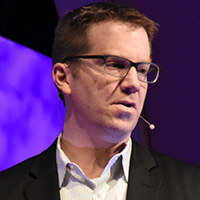
Lecture Topic: Legal Issues in Additive Manufacturing
Biography: Dr. Timothy W. Simpson is the interim Head of the School of Engineering Design, Technology, and Professional Programs and Paul Morrow Professor of Engineering Design & Manufacturing at Penn State. He is the co-Director of CIMP-3D, and he helped launch the world’s first online and resident graduate program in Additive Manufacturing & Design, growing it to more than 200 participants from over 80 different companies in four years. He has received over $50M in support of his research and has published over 400 peer-reviewed papers in journals and conference proceedings, and he was lead editor on two textbooks. He specializes in metal AM and Design for Additive Manufacturing (DfAM), and he has helped educate and train over 700 practitioners to date. He is a monthly columnist for Additive Manufacturing Media and Modern Machine Shop. He also serves as the Educational ADDVisorSM for The Barnes Global Advisors, a team of experts helping organizations industrialize AM. He has received numerous awards for outstanding research and teaching at Penn State, including the 2019 Teaching and Learning with Technology Impact Award for helping making 3D printing available to all 100,000 Penn State students. He is a recipient of ASME's Joel & Ruth Spira Outstanding Design Educator Award, Design Automation Award, Robert E. Abbott Award, and Ben C. Sparks Award as well as the ASEE Fred Merryfield Design Award. He is a Fellow in ASME and an Associate Fellow in AIAA. He received his Ph.D. and M.S. degrees in Mechanical Engineering from Georgia Tech and his B.S. in Mechanical Engineering from Cornell.